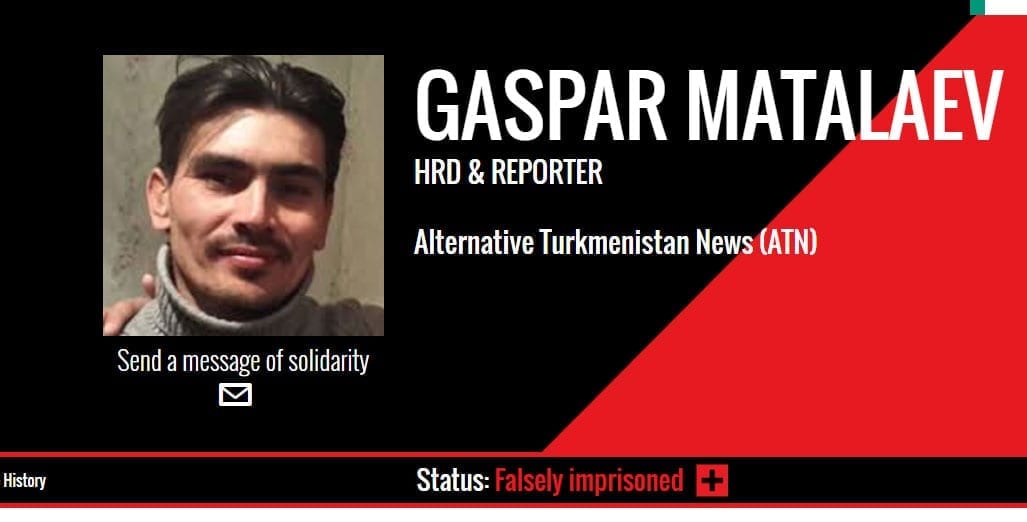Belarus, Burundi, Mauritania, Russia, Saudi Arabia, South Sudan and Turkmenistan are among the 22 countries with the worst human trafficking records in 2018, according to the U.S. State Department’s annual Trafficking in Persons Report.
The report notes that for the first time, a majority of victims in 2018 were trafficked within their countries of citizenship, especially in cases of labor trafficking.
In Turkmenistan, where the government “continued to engage in large-scale mobilizations of its adult citizens for forced labor in the annual cotton harvest and in public works projects, no officials were held accountable for their role or direct complicity in trafficking crimes,” according to the report.
Further, the report states that “the continued imprisonment and abuse of an independent observer of the cotton harvest and state surveillance practices dissuaded monitoring of the harvest during the reporting period.”
Gaspar Matalaev, a labor rights activist with Turkmen.news, who monitored and reported on the systematic use of forced adult labor and child labor in Turkmenistan, remains falsely imprisoned since 2016, days after Turkmen.news published his extensive report on the country’s forced labor practices.
He has been tortured with electric shocks and held incommunicado, according to the Cotton Campaign, a coalition of organizations, including the Solidarity Center, working to end forced labor in the cotton fields. (Send a message to the Turkmenistan government to immediately release Matalaev.)
Uzbekistan, another country with vast, state-sponsored forced labor in the cotton fields, remained on the watch list, a ranking indicating more progress by the government than in Turkmenistan. Although the Uzbekistan government has made strides in ending forced labor, public-sector employees continue to be coerced into a variety of construction and municipal service work, as documented in a recent report by the Solidarity Center and the Uzbek-German Forum for Human Rights (UGF). In addition, at least 175,000 people were forced to harvest cotton in Uzbekistan’s 2018 harvest.
Migrant Workers Vulnerable to Exploitation, Trafficking
The Trafficking in Persons report also details how labor recruiters often act as human traffickers, taking advantage of migrant workers who lack information on the hiring process, are unfamiliar with legal protections and options for recourse, and often face language barriers.
“Certain unscrupulous recruitment practices known to facilitate human trafficking include worker-paid recruitment fees, misrepresentation of contract terms, contract switching, and destruction or confiscation of identity documents,” the report states.
The report continues: “Low-wage migrant laborers are extremely vulnerable to and at high risk of exploitative practices such as unsafe working conditions, unfair hiring practices, and debt bondage—a form of human trafficking.”
Each year, the State Department ranks countries in one of four tiers, basing its assessment primarily on the extent of governments’ efforts to meet the minimum standards for the elimination of human trafficking outlined in the U.S. Trafficking Victims Protection Act (TVPA). Countries at the bottom, Tier 3, fail to show they are making any effort to end human trafficking.
The State Department has issued the report annually since 2001, following passage in Congress of the TVPA in 2000.

